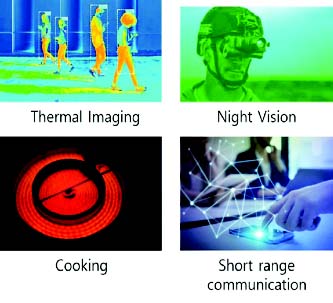

Advancements in IR Detection by Dr. Mohammad Awwal Adeshina: Addressing global challenges
By Blessing Emmanuel
Daegu, South Korea – In a groundbreaking development that could revolutionize environmental monitoring and security applications, Dr. Mohammad Awwal Adeshina, a researcher at the Division of Biotechnology at the Daegu Gyeongbuk Institute of Science and Technology (DGIST), has unveiled a pioneering innovation in infrared (IR) detection technology. His latest research paper, “Liquid Phase IR Detector Based on the Photothermal Effect of Reduced Graphene Oxide-Doped Liquid Crystals,” introduces a state-of-the-art solution that promises to significantly enhance our ability to detect and monitor environmental pollutants, hazardous materials, and potential security threats
The innovation arrives at a crucial juncture as the world grapples with escalating environmental challenges, energy demands, and the profound impacts of climate change. Traditional IR detection methods have often fallen short in terms of sensitivity, speed, and cost-effectiveness, hindering our ability to effectively monitor and mitigate these pressing issues. Dr. Adeshina’s advanced liquid phase IR detector leverages the photothermal effect of reduced graphene oxide-doped liquid crystals to achieve unprecedented sensitivity and speed, enabling real-time detection and analysis of infrared signatures with remarkable accuracy.
“The urgency of our environmental challenges requires innovative solutions that can provide actionable insights and enable proactive measures,” said Dr. Adeshina. “Our technology offers the potential for more effective monitoring and management of environmental changes, as well as enhanced security capabilities, providing a hopeful path toward a more sustainable and resilient future.”
The enhanced capabilities of Dr. Adeshina’s IR detector not only mark a significant technical achievement but also herald a new era for industries striving to minimize their environmental impact and ensure public safety. As the global community pushes for cleaner technologies, greener alternatives, and robust security measures, this innovation stands to play a pivotal role, delivering tangible benefits for both the planet and its inhabitants.
With its potential applications spanning environmental monitoring, industrial process control, security screening, and beyond, Dr. Adeshina’s liquid phase IR detector represents a game-changing advancement in the field of infrared detection. By enabling more accurate and timely detection of pollutants, hazardous materials, and potential threats, this technology could empower governments, industries, and organizations to make informed decisions and take proactive measures to mitigate risks and protect the environment and public safety.
For further details on the research or to explore collaborative opportunities, please contact the communications department of the Division of Biotechnology at the Daegu Gyeongbuk Institute of Science and Technology (DGIST)




